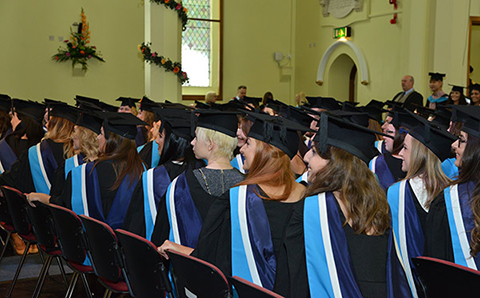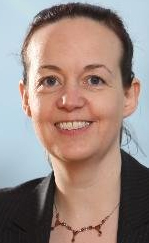Uni to pioneer ‘name-blind’ application process for UCAS

Thu, 08 Sep 2016 12:40:00 BST
Huddersfield is one of four English universities that will take part in the process
 AS part of a mission to ensure complete fairness in the admissions process – so that no ethnic group misses out on educational opportunities – the University of Huddersfield will join a group of four English institutions taking part in a pioneering “name-blind” project.
AS part of a mission to ensure complete fairness in the admissions process – so that no ethnic group misses out on educational opportunities – the University of Huddersfield will join a group of four English institutions taking part in a pioneering “name-blind” project.
It means that for some undisclosed courses starting in 2017, the names of applicants will be masked out while it is decided whether to offer the applicant a place. The aim is to discover whether information about a would-be student’s ethnic background plays an unconscious part in the decision-making process.
Huddersfield is joined by the universities of Exeter, Liverpool and Winchester in the name-blind project, which is co-ordinated by UCAS, the UK’s shared admissions service, in tandem with the independent campaigning organisation Supporting Professionalism in Admissions.
The four universities volunteered for the name-blind experiment, in response to a call made by the then Prime Minister, David Cameron. The Vice-Chancellor of the University of Huddersfield, Professor Bob Cryan, is a member of the UCAS board and was keen for his institution to take part.
University of Huddersfield chiefs are confident that its admissions process is already fair and transparent, and that it selects applicants purely on the basis of talent and the ability to benefit from courses, according to Deputy Vice-Chancellor Professor Tim Thornton (pictured below).
 “We have one of the most open cultures in UK Higher Education, with a very large ‘widening participation’ cohort who go on to great academic and career success,” he continued.
“We have one of the most open cultures in UK Higher Education, with a very large ‘widening participation’ cohort who go on to great academic and career success,” he continued.
“Our participation in the name-blind trial in practice builds on existing practice at the University which has been developed over many years, and reflects our determination to be at the cutting-edge when it comes to fair and effective admissions policies.”
Unconscious bias
UCAS has published a new report that investigates the issue of unconscious bias in the university admissions process. It confirms that “universities and colleges make significant efforts to ensure their admissions policies are fair and transparent and give all applicants who can demonstrate they have the potential an equal opportunity to secure a place, regardless of their backgrounds, sex or ethnicity”.
But the report goes on to state that “there have been concerns in government that well-qualified people are not getting offers from universities and colleges because of bias in higher education admissions”. In a 2015 article, David Cameron expressed concerned about disparity in offer rates to white and black applicants and he asked UCAS to investigate the feasibility of the name-blind approach.
Complement existing approaches
 THE new report is based on a survey of 120 universities and colleges, focus groups, and discussions with technology providers and with stakeholders in the UK and overseas. It provides statistical data, analyses the technical challenges of masking the names of applicants, and concludes with a sequence of recommendations, calling for an evaluation of the effectiveness of a name-blind approach alongside better training about unconscious bias and the sharing of good practice.
THE new report is based on a survey of 120 universities and colleges, focus groups, and discussions with technology providers and with stakeholders in the UK and overseas. It provides statistical data, analyses the technical challenges of masking the names of applicants, and concludes with a sequence of recommendations, calling for an evaluation of the effectiveness of a name-blind approach alongside better training about unconscious bias and the sharing of good practice.
Helen Thorne (pictured right), UCAS’ Director of External Relations, said: “Managing university admissions is a complex business. Universities use different technology systems and many use a number of different admissions processes for individual subjects.
“Admissions professionals are concerned that if UCAS were to mask names centrally this could affect their ability to maintain relationships with students and undermine efforts to widen participation.
“The projects being undertaken in 2017 will enable universities to evaluate the effectiveness of a name-blind approach and how it could complement existing approaches used to ensure that admissions are fair for all.”







